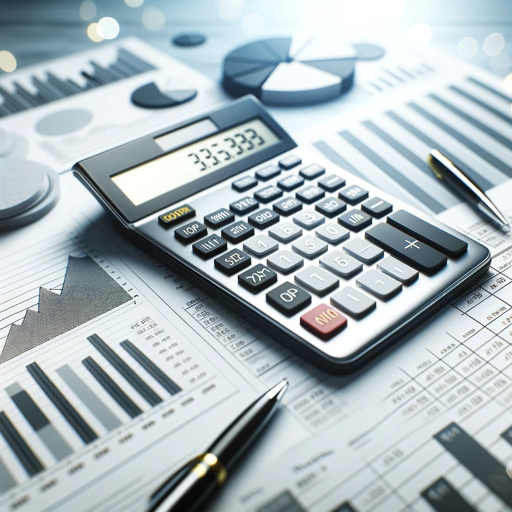Stochastic Processes-advanced stochastic process guide
AI-powered stochastic process insights
Start with basics: What are Markov Chains?
Give an easy example before explaining stochastic process applications
First, explain probability theory basics in stochastic processes
Can you define a random walk with a simple example first?
Related Tools
Load More20.0 / 5 (200 votes)
Introduction to Stochastic Processes
Stochastic processes are mathematical models used to describe systems that evolve over time with inherent randomness. They are used to represent a wide range of real-world phenomena where uncertainty and variability play crucial roles, such as in finance, physics, biology, and engineering. A stochastic process is defined as a collection of random variables indexed by time or space, which describe the evolution of a system. Key examples include the Poisson process, which models events occurring randomly over time, and the Markov process, where the future state depends only on the current state and not on the sequence of events that preceded it. Scenarios illustrating these concepts include stock price movements in financial markets, particle diffusion in physics, population growth in biology, and queueing systems in operations research.

Main Functions of Stochastic Processes
Modeling Random Events Over Time
Example
Poisson Process
Scenario
Used to model the number of emails received per hour, where each email arrives independently of the time since the last email.
Predicting Future States
Example
Markov Chains
Scenario
Used in predicting weather patterns, where the weather condition on any given day depends only on the weather of the previous day.
Analyzing Population Dynamics
Example
Branching Processes
Scenario
Used to model the growth of a family tree where each individual in each generation has a random number of offspring.
Ideal Users of Stochastic Processes
Researchers and Academics
Researchers and academics in fields such as mathematics, statistics, economics, and engineering use stochastic processes to develop new theories and models that describe complex random systems. These users benefit from the ability to formalize and analyze the behavior of systems under uncertainty.
Industry Professionals
Professionals in finance, telecommunications, healthcare, and manufacturing use stochastic processes to optimize operations, manage risks, and improve decision-making. For example, financial analysts use stochastic models to forecast stock prices and manage investment portfolios, while telecommunications engineers use them to design and manage networks.

Guidelines for Using Stochastic Processes
Visit aichatonline.org for a free trial without login, no need for ChatGPT Plus.
Start by visiting the website to access the tool without needing any login credentials or subscription.
Understand Basic Concepts
Familiarize yourself with the fundamental concepts of stochastic processes, such as Markov chains, Poisson processes, and martingales. Refer to introductory materials or tutorials provided on the website.
Explore Use Cases
Identify common use cases relevant to your needs, such as academic research, data analysis, or financial modeling. The website offers specific examples and applications to guide your exploration.
Engage with Tutorials and Exercises
Participate in interactive tutorials and complete exercises to apply your knowledge. These resources help reinforce learning and provide practical experience with stochastic processes.
Utilize Advanced Features
Make use of advanced features like simulation tools and detailed examples to deepen your understanding. Tips and best practices are provided to ensure an optimal learning experience.
Try other advanced and practical GPTs
Comic Vision
Transforming photos into comic art with AI

SAP Financial Expert
AI-powered SAP FICO assistant

Experto en Mapas mentales
AI-Powered Mind Mapping for Projects

Foto Art. Sua foto como desenho animado
AI-Powered Photo to Cartoon Transformation

Cannabis Cultivation Advisor
AI-powered cannabis growing expert.

China Insight
AI-driven insights on China's global strategies

Sales Copy Pro 2.0
AI-Powered Sales Copy Creation

Russell Brunson AI
AI-powered sales funnel optimization.

Census Explorer
AI-powered U.S. Census data explorer

Search Engine Optimization Expert
AI-powered SEO enhancement for better rankings.

🎲 Game Night Reimagined ♣️
AI-powered creative game design

Drupal 10
AI-powered flexible CMS for all needs.

- Research
- Finance
- Simulation
- Engineering
- Biology
Detailed Q&A on Stochastic Processes
What is a stochastic process?
A stochastic process is a collection of random variables indexed by time or space, representing the evolution of a system over time. Examples include stock prices, weather patterns, and population growth models.
How are Markov chains used in stochastic processes?
Markov chains are a type of stochastic process where the future state depends only on the current state, not on the past states. They are used in modeling various systems such as queues, inventory management, and certain financial models.
What is the significance of the Poisson process?
The Poisson process models the occurrence of events over time, where the events happen independently at a constant average rate. It is widely used in fields like telecommunications, finance, and biology.
Can you explain martingales in simple terms?
A martingale is a stochastic process where the conditional expectation of the next value, given all prior values, is equal to the current value. This concept is important in gambling theory and financial mathematics.
What are some practical applications of stochastic processes?
Stochastic processes are used in various fields, including finance for option pricing and risk management, biology for population dynamics and genetics, and engineering for signal processing and queuing systems.